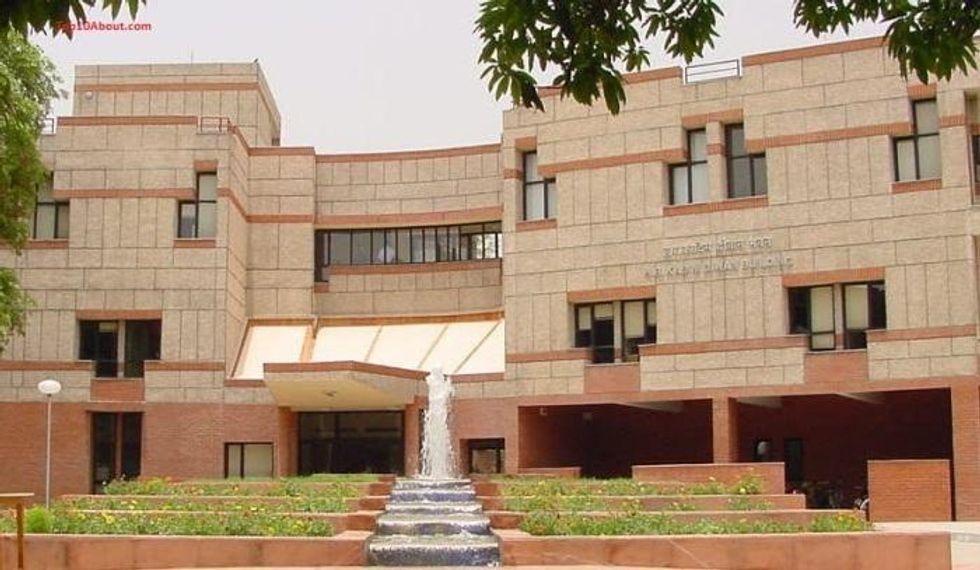India is going through a phase of transformation. The markets are expanding, the economy is surging forward and the infrastructure is trying its best to keep up. And this incredible change is headed by engineers from many disciplines.
Naturally, in different engineering sectors, the demands are rising rapidly. And regardless of their genre, commercial and public sector entities are keen on hiring experienced engineers. Engineering education in the country is fueled by this dire need. And the opportunities are attracting brilliant minds to engineering disciplines, enriching the sector even more.
Today in India, there is an abundance of engineering colleges. But not every college can arm a student with skills and experience that matter in contemporary industry. Progress is largely limited to industrial urban sectors in the land. The cities are well supplied with utilities and infrastructure needed for transforming a student into an engineering professional.
Academia and industry enjoy an exemplary relationship in these cities. And the same results in more opportunities for skill development and employment for students. This article will concentrate on a few of these incredible aspects that can be noticed in Indian institutes. And set a threshold of expectation for the readers.
Eligibility requirements
To enroll in good engineering colleges in India, a student must work hard and master the prerequisites. The joint entrance examinations for engineering at both state and national levels are extremely difficult and considered one of the most arduous exams on the planet. IIT entrance exams are even more difficult and require hard work and consistency from a student. After a student qualifies for one of these entrances they are subjected to counseling and placed in colleges according to their rankings. To appear on these tests students must study physics, chemistry, and mathematics as compulsory subjects during their 12th. And demonstrate satisfying performance in their respective board exams.
Industry aligned education
The industry alignment of an institute depends mostly on its localization. In Indian cities industry and academia enjoys a mutually beneficial relationship. The industry gets to train its employees from an early tenure. And the students get to experience the workspaces and incubate for maximum readiness.
Good engineering colleges try to keep up with the industry's demands. As the same is subject to change. The curriculum they follow is thus expected to be a frequently upgraded one. Equipped with courses that can add value to a student and help secure long-lasting professional relevance. In addition to that, a good curriculum encourages a student to take up internships from an early tenure. And prepare them accordingly for the same, so that they can.
Experienced faculty
Faculty in an engineering college determines the quality and relevance of knowledge. In well-funded colleges, these teachers are also involved with cutting-edge research. And through the same, they enjoy significant influence in contemporary industry. Many of them are considered trendsetters and are responsible for major paradigm shifts. These teachers during their long tenure place entire batches of students in a relevant intern or employee roles.
And with each passing session, the process becomes easier for them. Experienced teachers are well-informed regarding the trends and expectations of the industry. And can prepare their students in a way so that their strengths and interests can be put to good use.
Transparency
If the time and finances are considered, engineering is an expensive academic venture to undertake for most Indians. And good engineering colleges understand this fact. Therefore, the responsible ones tend to reveal every aspect of their offerings including the terms, promises, and fees. And for validation purposes, these institutes also reveal contact details of relevant people like faculty members and alumni. So, an enrollment decision is made with maximum comprehension of the offerings. And the room for future grievances is completely eradicated.
Relevant and humble promises
Fake promises are inexpensive to make. And as there's no obligation for keeping them, these promises can be full of baseless grandeur. Therefore, they appeal to greed, robbing a student of money and the most productive time of their lives. Upstart institutes with high hopes of attracting a lot of enrollments and investments tend to promise things they can not deliver. And unfailingly fails every time to keep their promises.
To steer clear, it is wise to opt for institutes that are not eager to attract maximum attention. Rather focused on keeping the promises they make so that a student’s investment never ends up in vain.






















 sunrise
StableDiffusion
sunrise
StableDiffusion
 bonfire friends
StableDiffusion
bonfire friends
StableDiffusion
 sadness
StableDiffusion
sadness
StableDiffusion

 purple skies
StableDiffusion
purple skies
StableDiffusion









